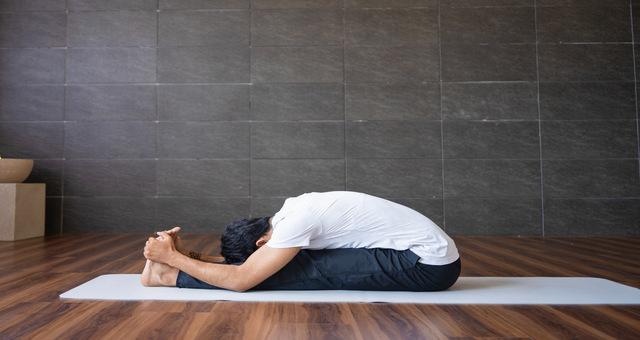“Peace of Mind: Nurturing Serenity in a Hectic World”

In our fast-paced, modern lives, finding moments of peace can seem like an elusive goal. The constant barrage of information, deadlines, and responsibilities often leaves us yearning for a sense of peace. But what exactly is peace of mind, and how can we develop it in our daily lives?
Introduction
At its core, peace of mind is a state of mental and emotional peace, with no worries or stress. In this article, we will discuss the various components that contribute to peace of mind and explore practical strategies for achieving and maintaining it.
Understanding the Components
mental well-being
Achieving peace of mind starts with prioritizing mental well-being. This includes understanding and managing our thoughts, promoting a positive mindset and addressing any mental health challenges.
emotional stability
Emotions play an important role in our overall well-being. Achieving peace of mind requires effectively identifying and overcoming our emotions to promote emotional stability.
stress management
An integral part of peace of mind is the ability to manage stress. We will explore effective stress management techniques that can be incorporated into daily life.
The Role of mindfulness
mindfulness practice
Mindfulness, the practice of being completely present in the moment, is a powerful tool for creating peace of mind. We will discuss mindfulness techniques and their impact on mental health.
Benefits of mindfulness
From reduced stress to improved focus, the benefits of mindfulness are wide-ranging. We’ll explore how incorporating mindfulness into daily routines can achieve lasting peace.
Create a Peaceful Environment
cluttered space
Our physical environment affects our mental state. Tips to declutter spaces to create a calming environment will be shared while emphasizing the importance of a clean space.
importance of calm environment
The impact of the environment on our mental health cannot be underestimated. We will discuss the importance of a calm environment and how it contributes to peace of mind.
Healthy Lifestyle Choices
exercise and its effects
Physical activity is not only beneficial for the body but also plays an important role in mental health. We will explore the connection between exercise and peace of mind.
Nutrition and mental health
The impact of maintaining a well-balanced diet extends significantly to mental well-being. We’ll discuss nutrition choices that support a healthy mind.
Building Positive Relationships
social relations
Human relationships are a fundamental aspect of peace of mind. Building and maintaining positive relationships contributes significantly to our overall well-being.
communication skills
Effective communication is the key to healthy relationships. We will explore communication skills that enhance understanding and promote harmony.
Digital Detox and Unplugging
Technology and mental well-being
Constant connection to technology can be a source of stress. We will discuss the impact of technology on mental well-being and the importance of digital detox.
Strategies for Digital Detox
Practical strategies for liberation from the digital world will be shared, allowing individuals to create boundaries and restore balance.
Work Life Balance
setting boundaries
For peace of mind, balance between work and personal life is necessary. We will discuss the importance of setting boundaries and strategies for maintaining a healthy work-life balance.
importance of downtime
It’s important to take breaks and allow yourself to recharge. We will explore the importance of downtime and leisure in achieving peace of mind.
Influence of Nature
healing effect of nature
Establishing a connection with the natural world holds a deep influence on one’s mental well-being. We’ll explore how spending time in nature can be a powerful remedy for stress.
Incorporating nature into daily life
Practical ways to incorporate nature into daily routines will be discussed, offering simple yet effective ways to promote peace of mind.
Coping with Challenges
building resilience
Building resilience is essential to deal with life’s challenges. We will explore strategies to develop resilience and overcome adversity.
Looking for professional help
In some cases, it is important to seek professional help. We will discuss the importance of reaching out to mental health professionals when needed.
Read More : How to Practice Yoga for Better Sleep and Insomnia Relief
Mindful Productivity
focus and concentration
Mindful productivity involves being fully engaged in tasks. We will explore techniques to increase focus and concentration in daily activities.
avoid multitasking
Multitasking can cause stress and reduce effectiveness. We will discuss the shortcomings of multitasking and advocate a more conscious approach to tasks.
Hobbies and Leisure Activities
importance of holidays
Engaging in hobbies and leisure activities is important for relaxation. We will explore the importance of leisure and how it contributes to peace of mind.
finding happiness in hobbies
Finding activities that bring happiness and satisfaction is an important aspect of creating peace of mind. We’ll give tips for finding hobbies and nurturing them.
Gratitude Practice
develop gratitude
Practicing gratitude has a transformative effect on mental well-being. We will explore ways to develop gratitude in daily life.
gratitude journaling
Keeping a gratitude journal is a practical way to incorporate gratitude into a daily routine. We’ll guide readers in starting and maintaining a gratitude journal.
Mind-Body Connection
holistic view
Mind and body are interconnected. We will explore holistic approaches that consider both mental and physical well-being in the pursuit of peace of mind.
yoga and meditation
Yoga and meditation are powerful practices for achieving balance. We will discuss their benefits and how they contribute to peace of mind.
Conclusion
In conclusion, achieving peace of mind is a multifaceted journey that involves nurturing various aspects of our lives. From mindfulness practices to creating a tranquil environment, and from healthy lifestyle choices to building positive relationships, each step contributes to the overall goal of attaining peace.
As we navigate the challenges of the modern world, coping strategies become paramount. Building resilience, seeking professional support when needed, and adopting mindful productivity are crucial elements in maintaining peace of mind. Balancing work and personal life, avoiding the pitfalls of multitasking, and finding solace in hobbies are practical steps toward a more serene existence.
The profound impact of nature on our mental well-being cannot be overstated. By incorporating nature into our daily lives, whether through a walk in the park or simply spending time outdoors, we tap into a therapeutic source that rejuvenates the mind and spirit.
Practicing gratitude is a transformative habit that fosters a positive outlook on life. Cultivating gratitude and keeping a journal of things to be thankful for can significantly contribute to peace of mind. The mind-body connection is another essential consideration, and holistic approaches like yoga and meditation offer profound benefits for both mental and physical well-being.
In conclusion, the pursuit of peace of mind is not a one-size-fits-all journey. It’s a personalized exploration of various strategies that resonate with each individual. By incorporating mindfulness, fostering positive relationships, embracing nature, and adopting a holistic approach to well-being, one can navigate the complexities of life with greater ease and find moments of tranquility amid the chaos.
Read More : How to Practice Yoga for Flexibility and Stress Reduction
FAQs (Frequently Asked Questions)
1. How long does it take to achieve peace of mind through mindfulness practices?
- Achieving peace of mind through mindfulness practices varies for each individual. Engaging in regular and persistent practice has a tendency to produce favorable outcomes over time.
2. Can digital detox really make a difference in mental well-being?
- Yes, taking breaks from technology can significantly impact mental well-being by reducing stress and promoting a sense of balance.
3. Is it necessary to seek professional support for peace of mind?
- In some cases, seeking professional support, such as therapy or counseling, can be crucial for addressing underlying mental health concerns.
4. What are some quick strategies for coping with stress in the moment?
- Deep breathing exercises, taking a short walk, or practicing gratitude in challenging situations are effective strategies for managing stress.
5. How can one maintain a work-life balance in a demanding job?
- Setting clear boundaries, prioritizing self-care, and scheduling downtime are key elements in maintaining a healthy work-life balance.




